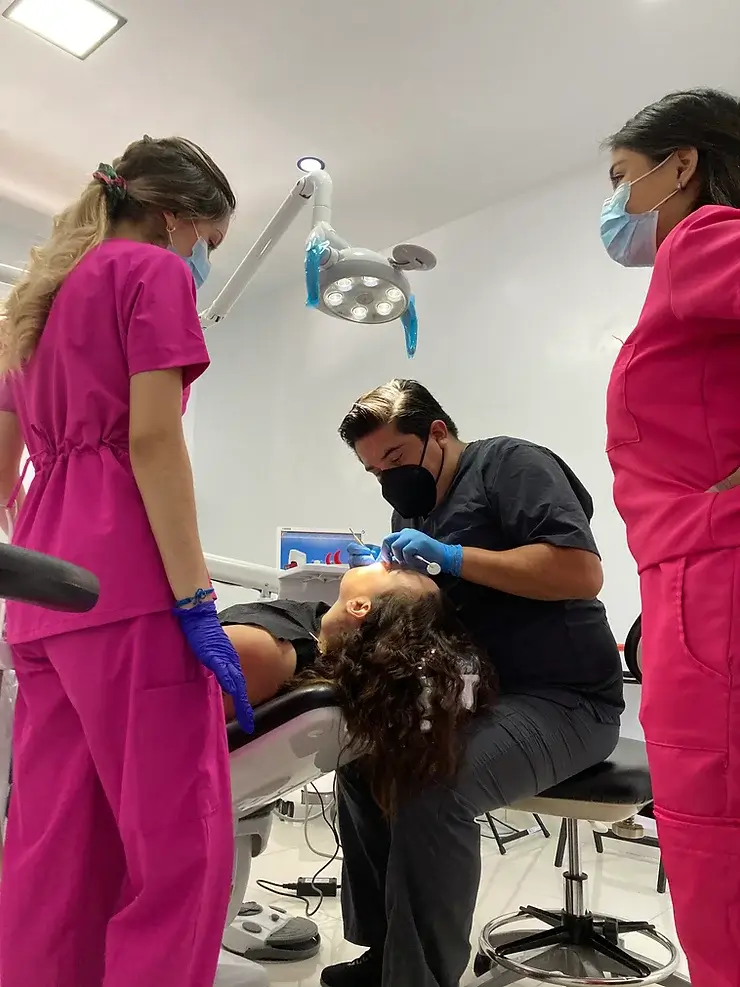Do you follow a schedule of regular dental cleanings to keep your smile healthy? Unfortunately, this habit is neglected by many adults who later find themselves in need of more extensive restorative care to preserve their healthy smiles. Even if you brush and floss every day, you should see the dentist for preventive dental care at regular intervals. By investing in your smile now, you may prevent painful dental conditions that can affect your overall health, such as abscessed teeth or periodontal disease.
What Preventive Dentistry Includes
Preventive dentistry includes two vital components: Cleanings and exams. For most people, visiting the dentist twice per year for preventive care is enough. However, some individuals will benefit from seeing the dentist for more frequent cleanings. For example, if you suffer from gum disease, are pregnant, have a history of smoking, or have a weakened immune system, you may need cleanings up to 4 times per year.
Here’s a closer look at the general guidelines recommended for preventive dental care:
- Dental cleanings at 6-month intervals – Dental cleanings are performed by a dental hygienist using special tools to remove plaque and tartar from the teeth. Brushing and flossing alone aren’t enough to fully eliminate the buildup of these hardened substances that can eventually eat away at healthy tooth enamel. After the hygienist has thoroughly removed tartar from the gum line and in between the teeth, they will use a high-powered electric brush and abrasive toothpaste to polish and deeply clean the enamel. Next, they’ll floss the teeth and give your mouth a rinse. Your hygienist may also apply a fluoride treatment after your cleaning to strengthen your teeth.
- Dental exams and X-rays – Every time you visit the dentist for a preventive visit, the dentist or hygienist will perform a visual exam of your teeth to look for signs of tooth decay, oral cancer, gum disease, and other concerns. Once per year, or every other visit, the dentist will take X-rays to get a closer look at the structure of the tooth roots and jawbones. During your exam, your dentist may also recommend sealants, which are applied to the chewing surfaces of the teeth. Sealants help to prevent cavities by covering the more jagged tooth surfaces in the molars where cavities tend to develop most often. While dental sealants are most commonly used for children, adults can have dental sealants applied as well.
Why Preventive Dentistry Matters
According to the Centers for Disease Control and Prevention, about one quarter of adults aged 20-44 has untreated dental cavities. Left untreated, cavities can compromise the structure of the whole tooth, which may eventually need to be extracted. In addition, dental cavities may heighten your risk of periodontal disease, which can greatly compromise your oral health and even pose risks for your heart health. Another surprising figure from the CDC is that only about 65% of adults 18 and over in the U.S. have had a dental visit in the past year. Yet, preventive visits are the best measure you can take against common dental health concerns like cavities and periodontitis.
If you hesitate to seek dental care due to dental anxiety, your dentist can offer helpful solutions to make you more comfortable. You might explore the possibility of using dental sedation during your regular cleanings and exams, which will allow you to relax while you’re in the dentist’s chair.
How to Improve Your Dental Care at Home
Another important reason to maintain a schedule of preventive dental visits is to shape a positive dental hygiene routine at home. Your dental care team will offer insight on areas of your oral care that may need improvement as well as recommend the right type of floss, toothpaste, and toothbrush for your needs.
The foundation of every at-home routine should be brushing twice daily and flossing once daily. You may also choose to use a water flosser, but this should not replace traditional floss or floss picks that make physical contact with hard-to-reach surfaces between the teeth. Your dentist will most likely recommend an electric toothbrush over a manual one, as electric toothbrushes have built-in timers to ensure you’re brushing for a full two minutes. They also create a vibration that helps loosen buildup on the teeth for smoother, stronger enamel.
For the ongoing dental care you need at an affordable cost, reach out to The Tooth Inc. Dr. Abraham Chavez Portillo, D.D.S and our team will provide gentle, effective care for your smile at any age. Contact our Nogales dentistry practice at (631) 158-3845 or dial (520) 257-5398 if you’re calling from the U.S.


